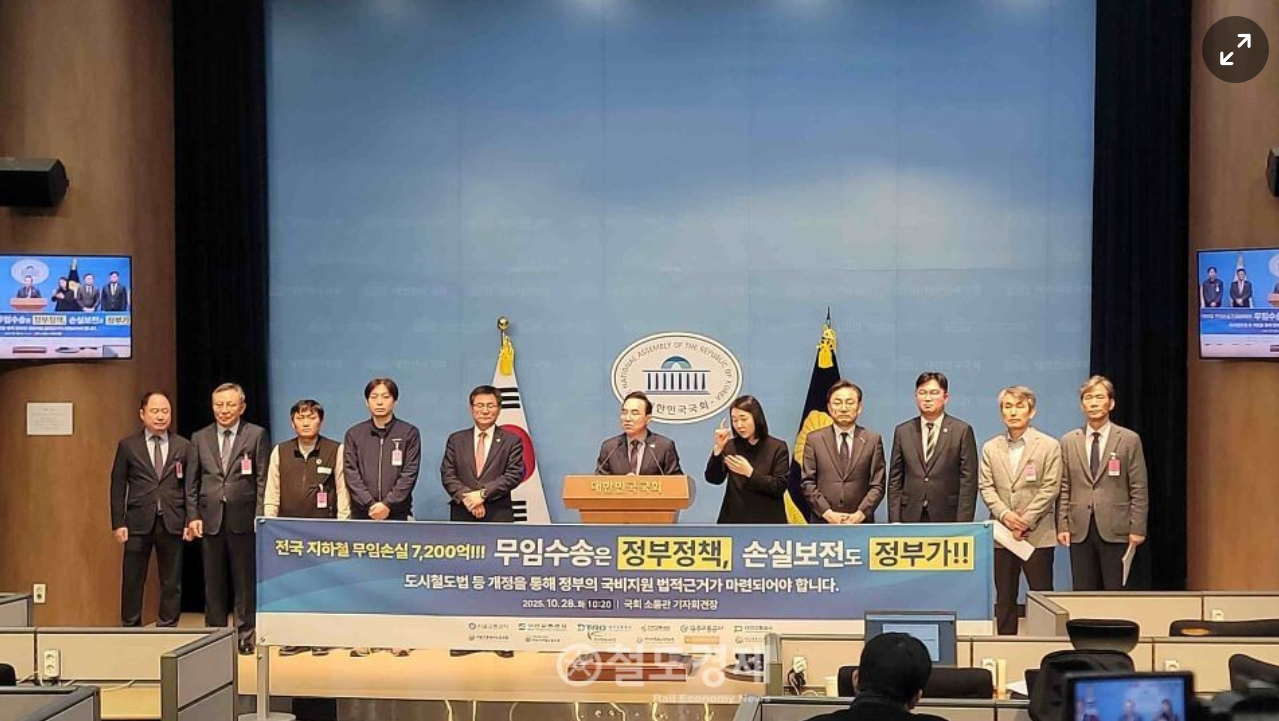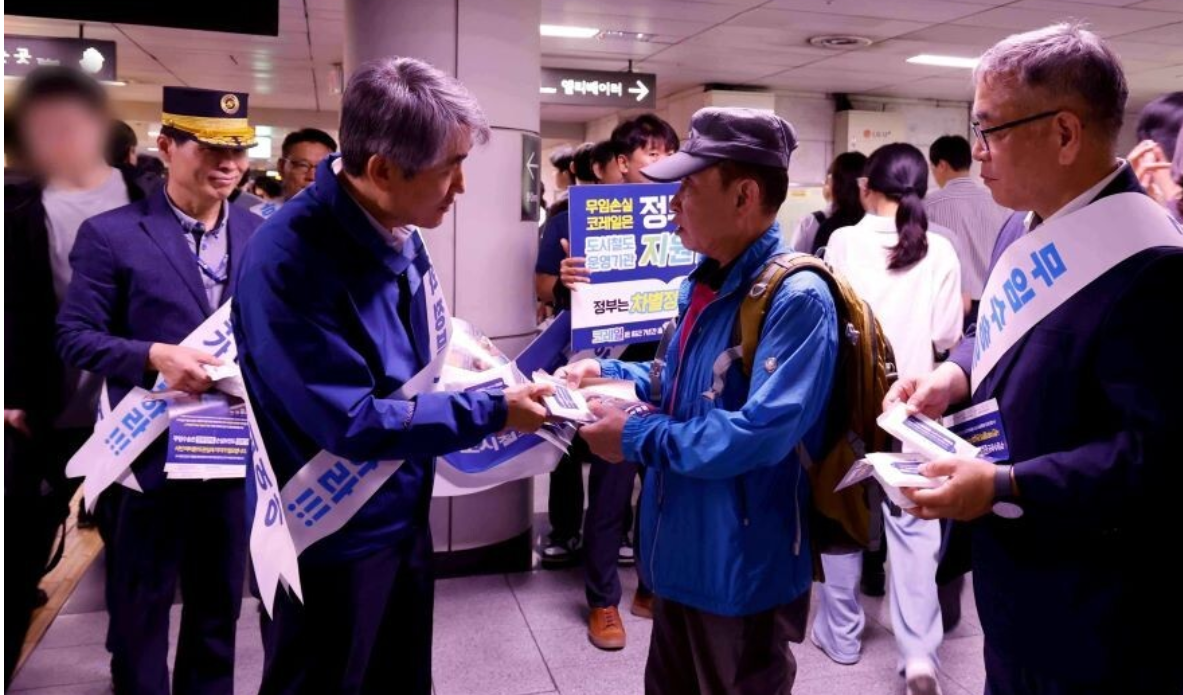
Reservation booth:+86(0)21-3114 8748
Visit/media contact:+8613601815988
QQ:2463282767
email:artsexpo@sgexpo.cn
Rail Transit Exhibition News South Korea's urban subway operators are facing serious deficits due to the financial losses caused by the long-term "free ride" policy. Labor representatives of six urban subway operators across the country held a joint press conference at the South Korean National Assembly on the 28th, calling on the government to revise relevant laws as soon as possible and establish a national subsidy mechanism to maintain the sustainable operation of the public transportation system

The press conference was hosted by the National Joint Consultative Council of Labor Representatives of Urban Subway Operators, and was attended by four members of the National Assembly: Park Hong-geun, Jung Jun-ho (Democratic Party of Korea), Lee Heon-seung (People's Power Party), and Shin Jang-sik (Fatherland Innovation Party). The participants jointly urged the government to take action as soon as possible to promote the reform of the "free ride system".
South Korea's "free ride system for urban subways" has been implemented in accordance with the president's instructions since 1980 and is implemented under national legal frameworks such as the Elderly Welfare Act, the Disabled Welfare Act, and the National Meritorious Service Treatment and Support Act. The system aims to protect the right to travel for the elderly, the disabled and people of national merit, but the operating costs are mainly borne by urban subway agencies and local governments, rather than funded by the central government.
According to statistics, the loss of free rides in urban subways across the country in 2024 will reach 722.8 billion won, accounting for 58% of the net loss in the current period, and the cumulative loss has approached 29 trillion won. At the same time, South Korea's aging rate has reached 20.3%, one of the highest in the world, and the financial burden is expected to increase further in the future.
In contrast, the Korea Railroad Corporation (KORAIL) can receive about 80% of the central government's compensation for losses in accordance with the principle of "public service costs shall be borne by the cause provider" in the Basic Act on Railway Industry Development. From 2017 to 2023, the government has allocated approximately 1.2 trillion won to KORAIL.
The Joint Labor-Management Consultative Council said that if this institutional imbalance is not eliminated as soon as possible and the same level of state subsidies as KORAIL is achieved, the financial system of the urban metro will be unsustainable, and transportation benefits will not be able to be discussed.

In his speech, Rep. Park Hong-geun pointed out: "The right to travel is a condition for maintaining the basic life of human beings. The free ride policy is not only a sign of respect for the older generation dedicated to the country, but also a symbol of intergenerational unity. He called on the society to go beyond the perspective of "cost burden" and seek reasonable solutions with the goal of ensuring the stable operation of the subway and promoting social harmony.
Councilor Lee Heon-seung also emphasized: "Transportation is a welfare, and the right to travel is a basic human right. The issue of free rides should be viewed as a sustainable social welfare issue, not a mere cost issue. ”
Currently, four related bills have been proposed in the 22nd National Assembly, including an amendment to the Urban Subway Act (sponsored by 14 members including Rep. Chung Joon-ho) and an amendment to the Elderly Welfare Act and the Disability Welfare Act (sponsored by 12 members including Rep. Lee Heon-seung).
Labor representatives for urban subways said they will continue to push for legislation, expand public support, and plan to collect more than 50,000 signatures from citizens by November through the "National Congressional Consent Petition" to urge the bill to be passed as soon as possible.